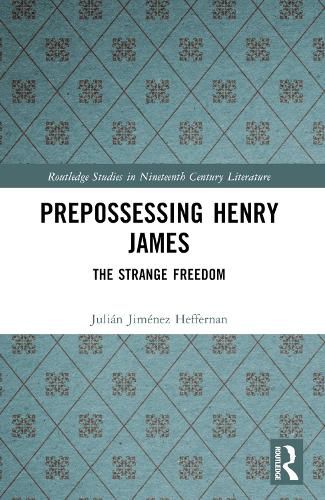Readings Newsletter
Become a Readings Member to make your shopping experience even easier.
Sign in or sign up for free!
You’re not far away from qualifying for FREE standard shipping within Australia
You’ve qualified for FREE standard shipping within Australia
The cart is loading…






The novels of Henry James are filled with ghosts, but most of them escape dramatic treatment. These elusive specters are the voices of precursors that haunt his narratives, compromising their constitutive freedom. The Strange Freedom is an examination of the ways James's fiction is prepossessed by some major voices of the English literary tradition: those of Shakespeare, Richardson, Fielding, Gibbon, Thackeray, and Dickens. This subtextual arrogation sets constrains to the unfolding, in James's narratives, of liberal and romantic freedom-it places limits both to the absolute exemptions of aesthetic interest and to radical Bohemian abandon. But these constrains and limits can be regarded, dialectically, as the enabling conditions of the very liberty they imperil. Drawing on recent research on the spectral dynamics and indirections of literary influence by scholars like Adrian Poole, Philip Horne, Nicola Bradbury, Tamara Follini, and Peter Rawlings, but also on earlier deconstructive work by John Carlos Rowe, Prepossessing Henry James offers a speculative account of the way James is simultaneously resourced and restrained by his sources. Along the way, we discover how Hamlet's ghost instills in James a fantasy of mental autonomy, or how he adapts Gibbon's Enlightened narrative to inhibit civic liberty with images of female sacrifice. We see the governess in The Turn of the Screw possessed by the specter of Richardson's Pamela, exposing social freedoms with liberal brutality. We encounter Gray, in The Ivory Tower, striving to obtain personal freedom by repressing Dickensian "figures, monstruous, fantastic." And, finally, we recognize how much The Ambassadors owes to the ambiguous manner of Thackeray.
Chapter 3 of this book is freely available as a downloadable Open Access PDF at http://www.taylorfrancis.com under a Creative Commons Attribution-Non Commercial-No Derivatives (CC-BY-NC-ND) 4.0 license.
$9.00 standard shipping within Australia
FREE standard shipping within Australia for orders over $100.00
Express & International shipping calculated at checkout
The novels of Henry James are filled with ghosts, but most of them escape dramatic treatment. These elusive specters are the voices of precursors that haunt his narratives, compromising their constitutive freedom. The Strange Freedom is an examination of the ways James's fiction is prepossessed by some major voices of the English literary tradition: those of Shakespeare, Richardson, Fielding, Gibbon, Thackeray, and Dickens. This subtextual arrogation sets constrains to the unfolding, in James's narratives, of liberal and romantic freedom-it places limits both to the absolute exemptions of aesthetic interest and to radical Bohemian abandon. But these constrains and limits can be regarded, dialectically, as the enabling conditions of the very liberty they imperil. Drawing on recent research on the spectral dynamics and indirections of literary influence by scholars like Adrian Poole, Philip Horne, Nicola Bradbury, Tamara Follini, and Peter Rawlings, but also on earlier deconstructive work by John Carlos Rowe, Prepossessing Henry James offers a speculative account of the way James is simultaneously resourced and restrained by his sources. Along the way, we discover how Hamlet's ghost instills in James a fantasy of mental autonomy, or how he adapts Gibbon's Enlightened narrative to inhibit civic liberty with images of female sacrifice. We see the governess in The Turn of the Screw possessed by the specter of Richardson's Pamela, exposing social freedoms with liberal brutality. We encounter Gray, in The Ivory Tower, striving to obtain personal freedom by repressing Dickensian "figures, monstruous, fantastic." And, finally, we recognize how much The Ambassadors owes to the ambiguous manner of Thackeray.
Chapter 3 of this book is freely available as a downloadable Open Access PDF at http://www.taylorfrancis.com under a Creative Commons Attribution-Non Commercial-No Derivatives (CC-BY-NC-ND) 4.0 license.